 W
WThe Alabama–Romania National Guard Partnership is one of 22 European partnerships that make-up the U.S. European Command State Partnership Program and one of 65 worldwide partnerships that make-up the National Guard State Partnership Program. The Republic of Romania signed a bilateral affairs agreement with the U.S. Department of Defense and the state of Alabama in July 1993 establishing the Alabama–Romania State Partnership Program. Since then, the ALNG has fostered a solid relationship and continues to be a viable enabler in building capacity in Romania.
 W
WThe Allies of World War I or Entente Powers were the coalition led by France, Britain, Russia, Italy, Japan and the United States against the Central Powers of Germany, Austria-Hungary, the Ottoman Empire, and Bulgaria during the First World War (1914–1918).
 W
WThe Allies of World War II, called the United Nations from the 1 January 1942 declaration, were the countries that together opposed the Axis powers during the Second World War (1939–1945). The Allies promoted the alliance as a means to control German, Japanese and Italian aggression.
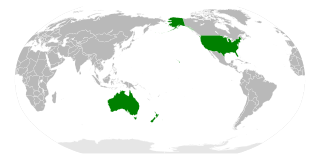 W
WThe Australia, New Zealand, United States Security Treaty is the 1951 collective security non-binding agreement between Australia and New Zealand and, separately, Australia and the United States, to co-operate on military matters in the Pacific Ocean region, although today the treaty is taken to relate to conflicts worldwide. It provides that an armed attack on any of the three parties would be dangerous to the others, and that each should act to meet the common threat. It set up a committee of foreign ministers that can meet for consultation.
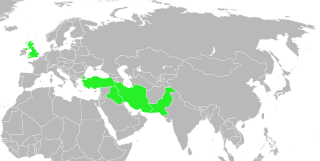 W
WThe Central Treaty Organisation (CENTO), originally known as the Baghdad Pact or the Middle East Treaty Organisation (METO), was a military alliance of the Cold War. It was formed in 1955 by Iran, Iraq, Pakistan, Turkey and the United Kingdom and dissolved in 1979.
 W
WBalikatan is the name for the annual military exercises between the Philippines and the United States. It is a Tagalog word meaning "shoulder-to-shoulder". The April 2016 10-day exercises is the 32nd iteration of the Balikatan exercises. The exercises have been the cornerstone of Philippines–United States military relations since the U.S. bases in the Philippines closed.
 W
WThe California–Ukraine National Guard Partnership is one of 22 European partnerships that make-up the U.S. European Command State Partnership Program and one of 65 worldwide partnerships that make-up the National Guard State Partnership Program (SPP). The California-Ukraine SPP is one of the most important and progressive partnerships within European Command. Ukraine's size and strategic location make it one of the most influential countries in the region, thus making the SPP a key factor in assisting Ukraine as it develops it budding democracy.
 W
WThe Colorado–Slovenia National Guard Partnership is one of 22 European partnerships that make-up the U.S. European Command State Partnership Program and one of 65 worldwide partnerships that make-up the National Guard State Partnership Program.
 W
WThe Franco-American alliance was the 1778 alliance between the Kingdom of France and the United States during the American Revolutionary War. Formalized in the 1778 Treaty of Alliance, it was a military pact in which the French provided many supplies for the Americans. The Netherlands and Spain later joined as allies of France; Britain had no European allies. The French alliance was possible once the Americans captured a British invasion army at Saratoga in October 1777, demonstrating the viability of the American cause. The alliance became controversial after 1793 when Britain and Revolutionary France again went to war and the U.S. declared itself neutral. Relations between France and the United States worsened as the latter became closer to Britain in the Jay Treaty of 1795, leading to an undeclared Quasi War. The alliance was defunct by 1794 and formally ended in 1800.
 W
WThe Georgia–Georgia National Guard Partnership is one of 22 European partnerships that make-up the U.S. European Command State Partnership Program and one of 65 worldwide partnerships that make-up the National Guard State Partnership Program. The Georgia National Guard has maintained a strong State Partnership program with the Republic of Georgia since 1994. Since then, Georgia has put itself on the path of acceptance into NATO, in large part due to the State Partnership Program.
 W
WThe Indiana–Slovakia National Guard Partnership is one of 22 European partnerships that make-up the U.S. European Command State Partnership Program and one of 65 worldwide partnerships that make-up the National Guard State Partnership Program. Since its inception in 1994, the Indiana and Slovakia partnership has grown steadily in its offerings, training events, and personnel.
 W
WThe Iowa–Kosovo National Guard Partnership is one of 22 European partnerships that make-up the U.S. European Command State Partnership Program and one of 65 worldwide partnerships that make-up the National Guard State Partnership Program. The partnership was created on March 11, 2011 with the long-term goal of developing the Kosovo Security Force (KSF) and fostering mutually-beneficial interests across all levels of society. Establishing a strong relationship with the government of Kosovo, this partnership represents a critical step toward the reform development of Kosovo's security forces along Euro-Atlantic standards. The relationship lead to a sister state agreement.
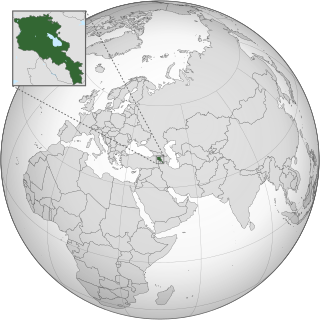 W
WThe Kansas–Armenia National Guard Partnership is one of 22 European partnerships that make-up the U.S. European Command State Partnership Program and one of 65 worldwide partnerships that make-up the National Guard State Partnership Program. The Republic of Armenia signed a bilateral affairs agreement with the U.S. Department of Defense and the state of Kansas in 2003 establishing the Kansas-Armenia State Partnership Program. Kansas Gov. Kathleen Sebelius subsequently signed a proclamation declaring June 18, 2004, as Kansas-Armenia Partnership Day.
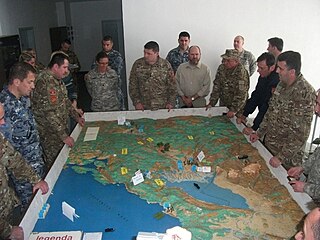 W
WThe Maine–Montenegro National Guard Partnership is one of 22 European partnerships that make-up the U.S. European Command State Partnership Program and one of 65 worldwide partnerships that make-up the National Guard State Partnership Program. Montenegro signed a bilateral affairs agreement with the U.S. Department of Defense and the state of Maine in 2006 establishing the Maine-Montenegro State Partnership Program.
 W
WThe Maryland–Bosnia and Herzegovina National Guard Partnership is one of 22 European partnerships that make-up the U.S. European Command State Partnership Program and one of 65 worldwide partnerships that make-up the National Guard State Partnership Program. The partnership was established in 2003 and has become integral to Bosnia and Herzegovina's post-war military integration and in their ongoing NATO accession process. The current focus is on a joint-deployment to Afghanistan, AT exchanges with key BiH units, and supporting BiH's NATO Partnership for Peace goals.
 W
WThe Maryland–Estonia National Guard Partnership is one of 22 European partnerships that make-up the U.S. European Command State Partnership Program and one of 65 worldwide partnerships that make-up the National Guard State Partnership Program. The partnership serves as a success model to other nations.
 W
WThe Michigan–Latvia National Guard Partnership is one of 22 European partnerships that make-up the U.S. European Command State Partnership Program and one of 65 worldwide partnerships that make-up the National Guard State Partnership Program. A partnership was established in 1993 and serves as a model SPP program for other nations. The current focus is HNS/ Reception, Staging, Orientation, and Integration (RSOI), Chemical-Biological-Radiological-Nuclear-Environmental (CBRNE) / Disaster Response, Joint Tactical Air Control (JTAC), Air Force & base development, and Contingency Operation Support.
 W
WThe Minnesota–Croatia National Guard Partnership is one of 22 European partnerships that make-up the U.S. European Command State Partnership Program and one of 65 worldwide partnerships that make-up the National Guard State Partnership Program. The partnership began in July 1996 and has progressed from small unit exchanges to deployments as Operational Mentoring and Liaison Teams (OMLT) in support of Operation Enduring Freedom (OEF). The partnership continues to support overseas contingency operations; assist in the development of disaster preparedness and consequence management, and support the EUCOM Commander's Security Cooperation Objectives.
 W
WThe Treaty of Mutual Cooperation and Security between the United States and Japan , also known in Japan as Anpo jōyaku (安保条約) or just Anpo (安保) for short, is a treaty establishing a military alliance between the United States and Japan. The treaty was first signed in 1951 at the San Francisco Presidio after the signing of the Treaty of San Francisco at the San Francisco War Memorial Opera House. Then, the Security Treaty was amended further in January 1960 between the US and Japan in Washington, DC.
 W
WMutual Defense Treaty Between the United States and the Republic of Korea is a treaty between South Korea and the United States signed on 1 October 1953, two months after the signing of the Korean Armistice Agreement which brought a halt to the fighting in the Korean War. The agreement commits the two nations to provide mutual aid if either faces external armed attack and allows the United States to station military forces in South Korea in consultation with the South Korean government.
 W
WThe North Atlantic Treaty Organization, also called the North Atlantic Alliance, is an intergovernmental military alliance between 30 North American and European countries. The organization implements the North Atlantic Treaty that was signed on 4 April 1949. NATO constitutes a system of collective defence whereby its independent member states agree to mutual defence in response to an attack by any external party. NATO's Headquarters are located in Evere, Brussels, Belgium, while the headquarters of Allied Command Operations is near Mons, Belgium.
 W
WThe New Jersey–Albania National Guard Partnership is one of 22 European partnerships that make-up the U.S. European Command State Partnership Program and one of 65 worldwide partnerships that make-up the National Guard State Partnership Program. The partnership was established in 1993. The current M2M focus places emphasis on OCO support, NCO Development, Military Medical pre/post deployment medical care, Military Police mentoring, military support to civil authority and disaster response.
 W
WThe North Carolina–Moldova National Guard Partnership is one of 22 European partnerships that make-up the U.S. European Command State Partnership Program and one of 65 worldwide partnerships that make-up the National Guard State Partnership Program. The Partnership was formalized on April 22, 1999. It has since evolved into a partnership that includes the efforts of many more organizations and individuals such as private firms, civic organizations and non-profit agencies. The partnership is a bi-lateral association with planning committees in both North Carolina and the Republic of Moldova who work together in a cooperative effort to improve and enrich the lives of everyone it touches.
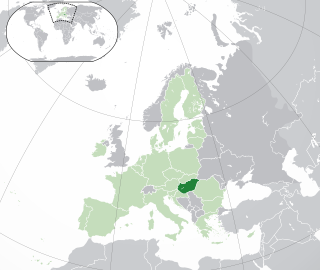 W
WThe Ohio–Hungary National Guard Partnership is one of 22 European partnerships that make-up the U.S. European Command State Partnership Program and one of 65 worldwide partnerships that make-up the National Guard State Partnership Program. The country of Hungary signed a bilateral affairs agreement with the U.S. Department of Defense and the state of Ohio in 1993 establishing the Ohio-Hungary State Partnership program. There is a large population of Hungarians throughout Ohio, especially in Columbus, Cleveland, Dayton and Toledo. Since then, Ohio and Hungary have conducted over 150 SPP events in a host of security cooperation activities ranging from bilateral familiarizations, small unit exchanges, exercises, senior military and civic leader visits to deployments of Operational Mentoring and Liaison Teams (OMLT) in support of Operation Enduring Freedom.
 W
WThe Ohio–Serbia National Guard Partnership is one of 22 European partnerships that make-up the U.S. European Command State Partnership Program and one of 65 worldwide partnerships that make-up the National Guard State Partnership Program. The country of Serbia signed a bilateral affairs agreement with the U.S. Department of Defense and the state of Ohio in 2006 establishing the Ohio-Serbian State Partnership program. With a substantial Serbian-American community in Cleveland it was a natural fit to create this partnership. Since then, Ohio and Serbia have conducted over 70 SPP events in a host of security cooperation activities ranging from bilateral familiarizations, small unit exchanges, exercises, senior military and civic leader visits to the potential development of future Medical Readiness Training Exercise (MEDRETE).
 W
WThe Oklahoma-Azerbaijan National Guard Partnership is one of 22 European partnerships that make-up the U.S. European Command State Partnership Program and one of 65 worldwide partnerships that make-up the National Guard State Partnership Program.
 W
WThe Pennsylvania-Lithuania National Guard Partnership is one of 22 European partnerships that make-up the U.S. European Command State Partnership Program and one of 65 worldwide partnerships that make-up the National Guard State Partnership Program. The Partnership was established on April 27, 1993. In the 20 years that have followed, Pennsylvania and Lithuania have conducted more than 500 exchanges that cover diverse topics such as Senior Leader Engagements, Recruiting, NCO Professional Development, Military Decision Making Process and Strategic Planning, Range Development, Airfield Development and Standards, Defense Support to Civil Authorities, Family Programs, and Resiliency. Also, Pennsylvania and Lithuania have jointly deployed to Afghanistan in support of ISAF, including four rotations of a Police Operational Mentor and Liaison Team. Pennsylvania also provided nine rotations of a team of Logistics Advisors to the Lithuanian led Provincial Reconstruction Team in the Gowhr Province. Pennsylvania and Lithuania are looking at other opportunities to jointly deploy to further expand the relationship between their militaries.
 W
WThe Security Treaty Between the United States and Japan was signed on 8 September 1951 in San Francisco, California, by representatives of the United States and Japan.
 W
WThe Sino-American Mutual Defense Treaty (中美共同防禦條約), formally Mutual Defense Treaty between the United States of America and the Republic of China(中華民國與美利堅合眾國間共同防禦條約), was a defense pact between the United States of America and the Republic of China effective from 1955 to 1980. It essentially prevented the People's Republic of China from taking over the island of Taiwan. Some of its content was carried over to the Taiwan Relations Act of 1979.
 W
WThe Southeast Asia Treaty Organization (SEATO) was an international organization for collective defense in Southeast Asia created by the Southeast Asia Collective Defense Treaty, or Manila Pact, signed in September 1954.
 W
WThe Tennessee–Bulgaria National Guard Partnership is one of 22 European partnerships that make up the U.S. European Command State Partnership Program and one of 74 worldwide partnerships that make up the National Guard State Partnership Program. The Republic of Bulgaria joined by signing a bilateral affairs agreement with the U.S. Department of Defense and the state of Tennessee in 1993. Since 2015 Bulgaria also contributes troops to the Resolute Support Mission as a member of NATO.
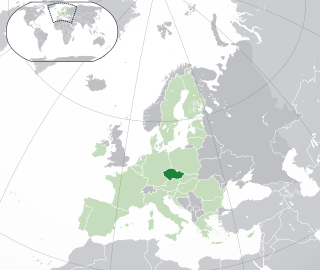 W
WThe Nebraska & Texas – Czech Republic State Partnership is one of 22 European partnerships that make-up the U.S. European Command State Partnership Program and one of 74 worldwide partnerships that make-up the National Guard State Partnership Program. The Czech Republic partnership with Nebraska and Texas began in 1993.
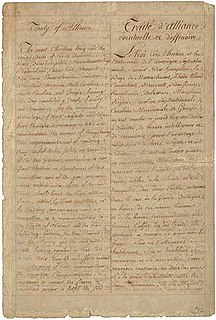 W
WThe Treaty of Alliance or Franco-American Treaty was a defensive alliance between France and the United States of America, formed in the midst of the American Revolutionary War, which promised mutual military support in case fighting should break out between French and British forces, as the result of signing the previously concluded Treaty of Amity and Commerce. The alliance was planned to endure indefinitely into the future. Delegates of King Louis XVI of France and the Second Continental Congress, who represented the United States at this time, signed the two treaties along with a separate and secret clause dealing with future Spanish involvement, at the hôtel de Coislin in Paris on February 6, 1778. The Franco-American alliance would technically remain in effect until the 1800 Treaty of Mortefontaine, despite being annulled by the United States Congress in 1793 when George Washington gave his Neutrality Proclamation speech saying that America would stay neutral in the French Revolution.
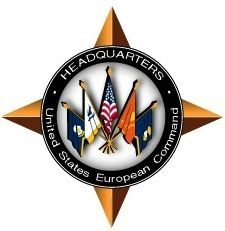 W
WThe United States European Command State Partnership Program, according to its own mission, is a National Guard program that "links U.S. states with designated partner countries to ... support the command’s security cooperation objectives." Currently, 22 Partnerships exist "with former Soviet, Yugoslav and Warsaw Pact countries in the EUCOM Area of Responsibility." Becoming independent on the dissolution of the Soviet Union on December 26, 1991, these countries shortly requested the advice and assistance of the United States in creating new self-defense forces.
 W
WThe U.S.-Japan Alliance is a military alliance between Japan and the United States of America, as codified in the Treaty of Mutual Cooperation and Security Between the United States and Japan, which was first signed in 1951, took effect in 1952, and was amended in 1960. The alliance has further been codified in a series of "administrative" agreements, "status of forces" agreements, and secret pacts that have not been subject to legislative review in either country.
 W
WU.S.–Japan Status of Forces Agreement is an agreement between Japan and the United States signed on 19 January 1960 in Washington, the same day as the revised U.S.-Japan Security Treaty. It is a status of forces agreement (SOFA) as stipulated in article VI of that treaty, which referred to "a separate agreement" governing the "use of [...] facilities and areas [granted to the U.S.] as well as the status of United States armed forces in Japan". It replaced the earlier "U.S.-Japan Administrative Agreement" that governed such issues under the original 1951 security treaty.
 W
WThe Vermont-North Macedonia National Guard Partnership is one of 22 European partnerships that make-up the U.S. European Command State Partnership Program and one of 65 worldwide partnerships that make-up the National Guard State Partnership Program. The partnership between the Vermont National Guard (VTNG) and the Army of the Republic of Macedonia (ARM) has flourished since its establishment in 1993. In 2012, the VTNG was awarded the Macedonian Military Order of Merit by President Gjorge Ivanov, in appreciation of VTNG’s commitment to the ARM. Vermont continues to support Macedonia’s armed forces as their professionalism and capability increase.